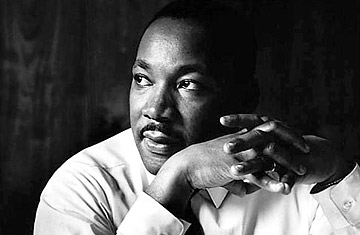
(8 of 11)
The white counterattack in California reflects one natural consequence of the Negro's militant position: a backlash reaction, derived from the notion that "the Negro is pushing too far, too fast," and that he is also threatening the unskilled white man's job security. James P. Mitchell, Eisenhower's onetime Labor Secretary, now San Francisco's human-relations coordinator and a friend of the Negro feels that "militancy could quite easily antagonize important people who are now prepared or preparing to do something. What Negroes have to remember is something they tend to forget: that they are a minority, and that they can only achieve what they want with the support of the majority." Says Los Angeles Housewife Maureen Hartman: "I don't see why the Negroes are weeping and wailing. This is not Birmingham. They can go anywhere. They can vote, hold good jobs, eat in the best restaurants. Just what do they expect from us?"
Reexamination. What the Negroes expect, and what they are getting to a degree that would have been astonishing at the start of 1963, is a change of attitude. "A lot of people," says Chicago's Negro Baptist Minister Arthur Brazier, "are re-examining their motives. Even if this means that a lot of hidden prejudices have been uncovered in Northerners, good will be gained from the fact that Americans have been forced to act on days other than Brotherhood Days and Weeks."
Often the changes in attitudes are tiny in scope but broad in meaning. No longer do the starters at Miami's municipal golf courses ask a trio of white men if they will accept a Negro fourth; they merely assign the Negro, and the foursome heads onto the course. A New York adoption agency is asking white families to take Negro children. Louise Morgan, a former Chicago advertising executive, says: "I had conned myself into thinking I was a liberal. The rude awakening occurred less than a year ago, when a Negro writer and his family sought an apartment in my building and were turned down. I had met him. He was bright and a gentleman. Yet I didn't lift a finger to help him. That's all changed now." In California, Real Estate Dealer Richard S. Hallmark quit his job in protest over the commonly accepted methods of restricting Negro house buying. "I had never sold to a Negro family in my life, but it grated on my conscience," he says. "I'm tired of people telling me they don't give a goddam about the law and that they're just not going to sell or rent to 'niggers.' I'm not a martyr or a crusader, but this made me ashamed. The colored people are here to stay, so we might as well get used to it."
In addition to marching in demonstrations, clergymen are welcoming Negroes to their all-white congregations in many places, and are mounting mail campaigns to Congress in support of the civil rights bill. Several Roman Catholic archdioceses now require a specific number of sermons on race relations.
